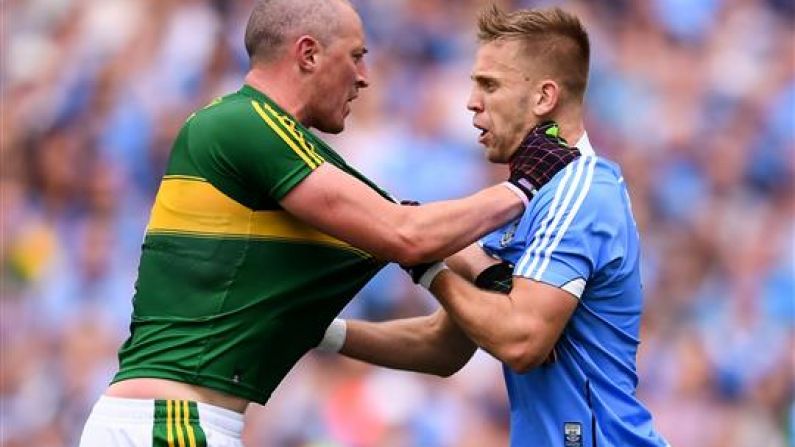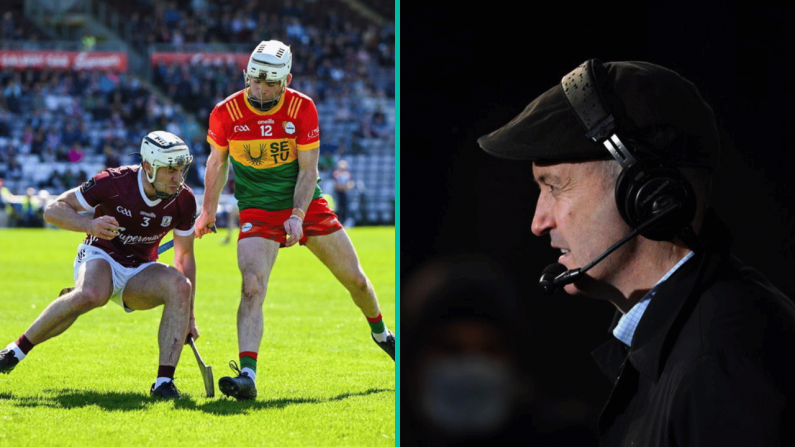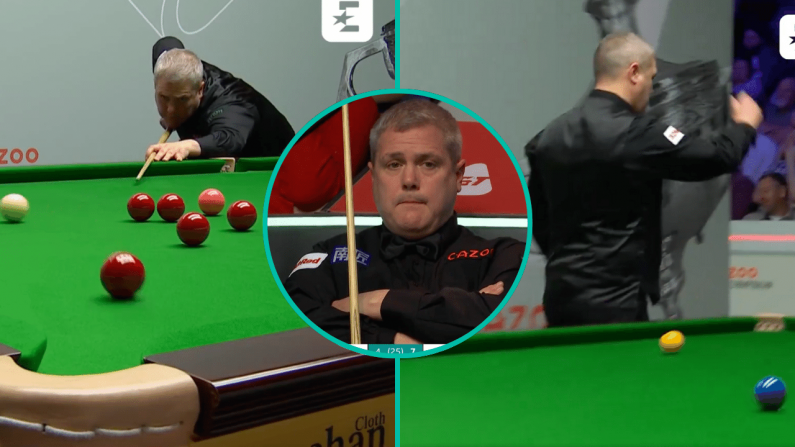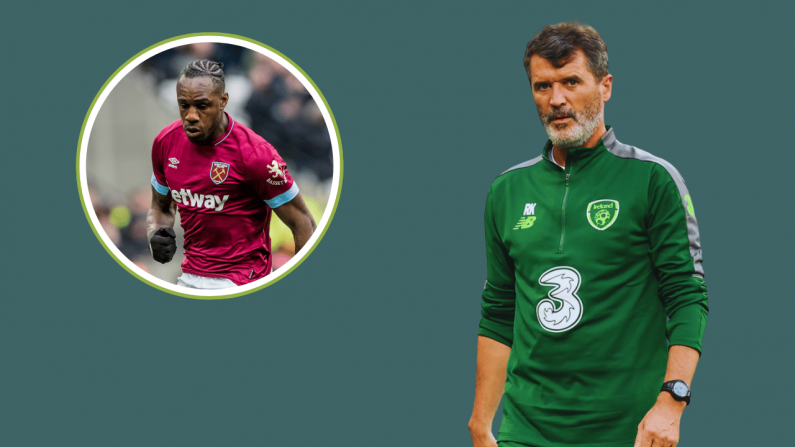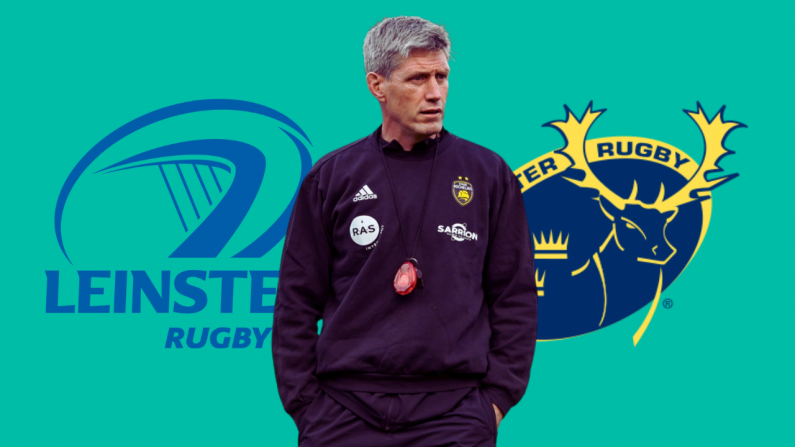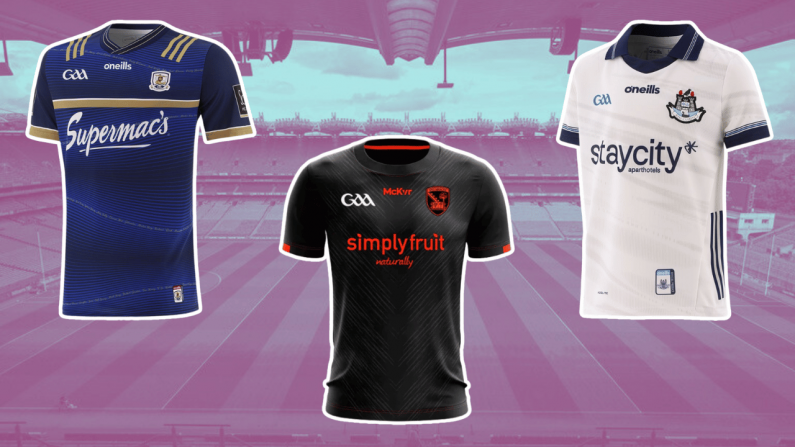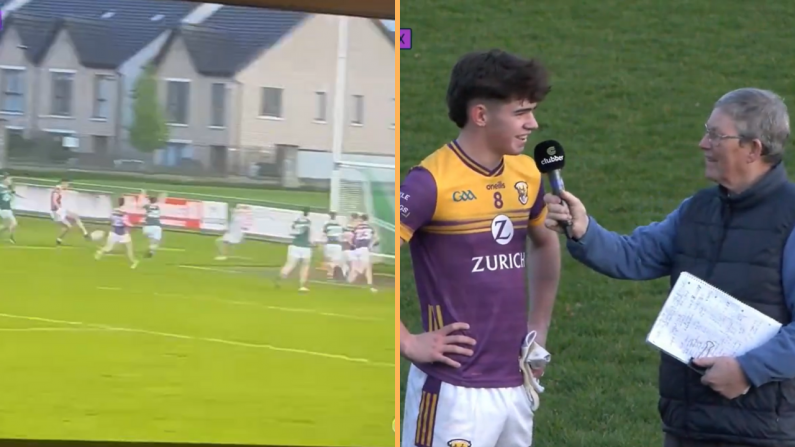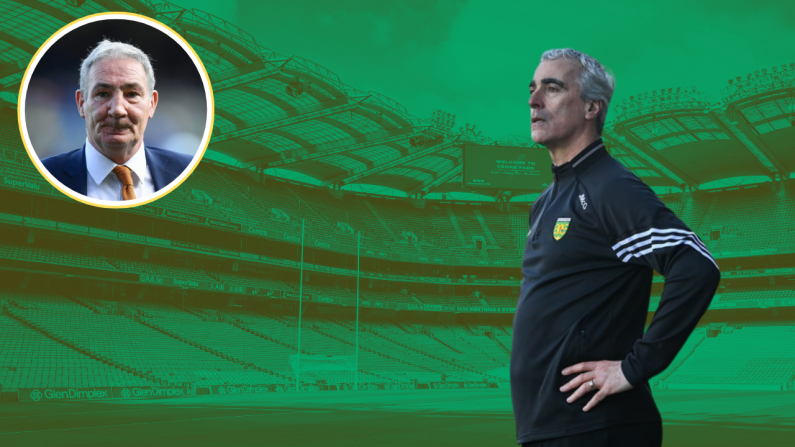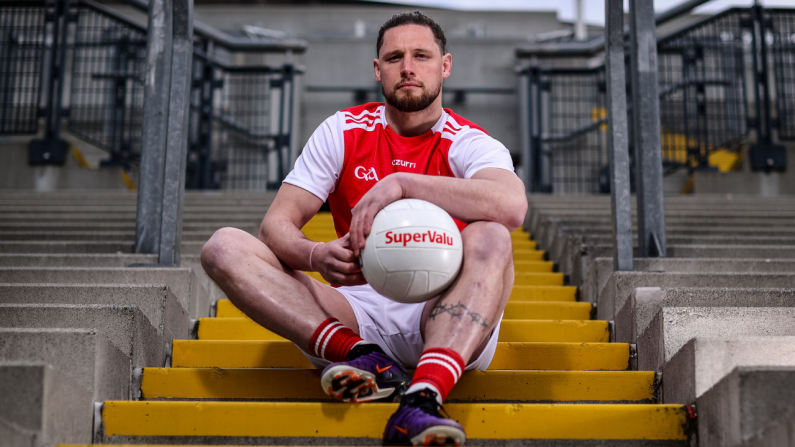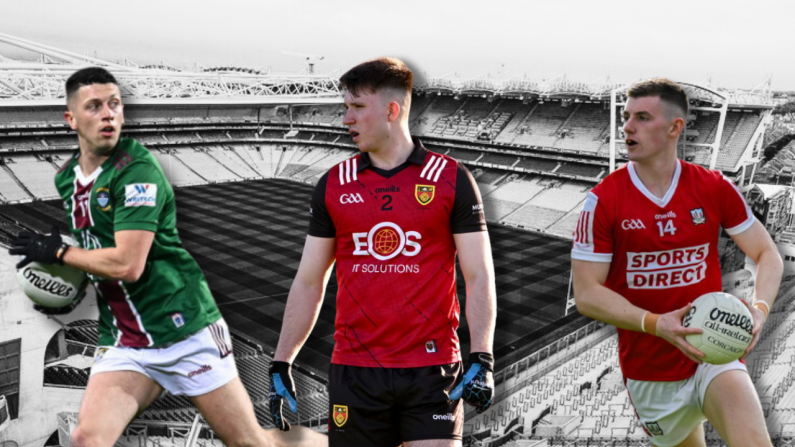In the penultimate line of his autobiography, Kieran Donaghy addresses the reader directly.
To you, the reader, I hope you understand now why I play the way I play. Thanks for taking the time to read this book and I hope you enjoyed it.
Was that the point in writing his autobiography, What Do You Think Of That, then? A justification of what has happened on the field over the past ten years to a misunderstanding public?
Balls sat down with Kieran this week to chat about his new book, and he says that the reason for writing the book went beyond the above.
Yeah, maybe possibly. But that message in the acknowledgements was never to justify anything I did on the field. I just hope that those who read the book see all sides of me, and that’s what the book should be about. People have this perception of me by looking at me on a pitch for seventy minutes on a Sunday, but there’s a lot more to me than that.
People have that perception, you see that with Costa at Chelsea, he’s hated by the fans but if you see the work he does with charities off the field, and the craic he has on the training ground, so maybe it’s a bit like that.
Donaghy's book certainly achieves that stated aim. He opens up on his sometimes turbulent childhood, and tells of how his personality was forged through working in a pub from an early age, meeting an assortment of characters who might well have stopped in for a pint on their way back to being part of a Flann O'Brien novel.
But we'll get to that.
Because there's plenty to talk about from the seventy minutes on a Sunday.
Donaghy paints such a rich and varied tapestry in the book, there are very few lines that recur again and again. One of them, however, is his belief that you should be the aggressor, not the reactor, in Gaelic football. The reactor, he says, is the one who usually gets sent off.
He says that his determination to play on the edge is part of what has earned him his spot with Kerry, as he freely admits he does not have the innate football talent of Gooch or the O'Sé's.
Look, I know I’m not the natural footballer, but I used the skillset that I had to become as dangerous a weapon as I could for Kerry.
Playing on the edge...I had to play on the edge with my skillset, because I couldn’t rely on the actual footballing skill of it, I had to be playing on the edge or I wasn’t being effective.
Backs always have it, but forwards often don’t, and I found earlier in my career that you had to have it if you were going to be messing around with these full-backs who had it in for you. I always played fire with fire, if I was going to be a leader up front for Kerry, on the physcial side of things.
I don’t think it was missing because we had the likes of Darragh O’Sé, Galvin and Aidan O’Mahony. But I thought maybe an inside forward bringing it was something we didn’t have, I think we had it around the half-forward line, the half-back line and in midfield, but I thought that in the full-forward line was somewhere I wanted to bring it more.
The game that receives most attention in the book is the 2006 All-Ireland quarter-final against Armagh. After hovering on the periphery of the panel in '04 and '05, 2006 was the year Donaghy hit the big time. Having lost the Muster final, Jack O'Connor ripped up the blueprint and started again. The new plan revolved around Donaghy lining out at full-forward, making his debut in that position in a qualifier against Longford.
It worked: he had a hand in 4-4 of Kerry' 4-11, and he was included against Armagh in a game now seen as a watershed moment in Kerry's modern history. Having lost to Armagh in 2002, and to Tyrone in 2003 and 2005, much was made of Kerry being left behind by this new Ulster machismo, remorselessly ignorant as it was of Gaelic football's traditional ways.
That day in Croke Park was the day the Kingdom ripped the carpet from underneath the blanket defence.
Marc O'Sé recently recalled that game as one of the two that stuck out the most for him over his career, and it's hard not to connect Kerry's fronting up with the inclusion of Donaghy at full-forward.
I helped them, but that game was a great collective team performance. My goal was probably one of the pivotal moments, but as a Kerry team that day, it was one of our most complete performances. But that was an unbelievable Armagh team we beat, and I hope I reflected that in the book.
After that game, Donaghy gave his jersey to his father, as a nod to the influence he played in getting him started at football.
The influence Oliver Donaghy had over his son's career is not downplayed in the book. Rus Bradburd, who coached Donaghy at basketball, writes that "I think Kieran has adopted the best parts of him - the charm, the charisma. As for the other side of Oliver, well a part of that we see when he's playing: the hyper-aggression, the ferocious energy. It all goes back to the father".
If you're wondering where Donaghy found the reserves of strength and self-belief to work his way back to fitness for the 2014 season, then consider this story he tells of his father in the book:
One time I saw him get kicked by one of the horses out there, hard in the ribs. He just grimaced and punched the horse right back in the face. The horse wobbled and nearly keeled over before gathering itself and tearing off up the field.
Donaghy opens up on that "other side" of his father, too. Oliver Donaghy struggled with drinking and gambling issues, with Donaghy writing that he believes his father was undiagnosed bipolar. Donaghy's parents eventually split up. This left Kieran in the middle of a couple of remarkable incidents, one in which his father came into the house, lifted Donaghy out of bed and drove him from Kerry to his native Tyrone in the dead of night.
They ran out of petrol on the way, and eventually had to walk miles to a filling station, the young Kieran still wearing his pyjamas. They had hidden the car beneath branches so as to avoid the southern reg plate being noticed in a politically tense north.
Amid the separation, Donaghy says he found refuge in sport. The quote on the back of the book reads "deep down, there was probably a certain rage there, a rage that all went with Dad leaving the house. I suppose I needed an outlet for my anger. Sport, winning, provided it".
How does he reflect on that line now?
I was young and confused early on, and my outlet was trying to win a game. Whether it was a basketball game on a Saturday or a football game on a Sunday, I just tried to win a game.
I was getting into fights with people in school, falling out with fellas and getting into scrap. That wasn’t good, and I said to myself ‘look, man, you can’t go on like this, I can’t have Mom coming into me every day in the school principal’s office, with blood all over my shirt’.
I needed to channel this rage in a better direction, and that bit of rage that came with the break-up was channeled into sports and games and into trying to win everything.
It is something that still motivates him.
He was similarly motivated in doing justice to the book. He has been working on it for well over a year, and says that he may have ghostwriter Kieran Shannon's heart broken, so often did he insist on changing words, re-reading and ensuring his voice was captured perfectly. He also worked closely with publishers in finding quotes to preface each chapter, and in designing the artwork which lends the book as distinctive a look as it has a voice.
In writing the book, confronting that past and that process of opening up was not something Donaghy struggled with.
Well do you know what, I kind of got used to it from a young age. When I was doing the book, I wanted to do it justice. If I was putting something down that I’d have to look at for the rest of my days, I wanted to make sure it was truthful and honest.
When I was a young fella I used to have people come around to my house when I was 15 or 16 and the first thing I’d say to them is ‘Oh, my Mom and Dad are separated, my Dad doesnt live here, he lives in another house’. From doing that all the time, I became this open person.
If I had a problem in my life, I’d tell people about it. I think that’s a good thing to have, and I think if people, or young people are having trouble or issues, talk about it, don’t be ashamed of it. It’s life, it happens.
All over the world, there are parents breaking up, so just embrace that, and take it for what it is.
That’s why I’m so open in the book, I’ve been that way all of my life, I am an open book, if you want to put it that way.
Donaghy has been equally open in discussing his inter-county future: he is raring to go for another year, if Eamon Fitzmaurice will have him. When the time does come to retire, however, it is not something that he fears, saying that he has plenty of other things to keep him going, including family life, a busy job, basketball, and club football with Austin Stacks.
But what of punditry? Does he fancy himself on the Sunday Game?
I have better things to do with my Sunday than arguing with Joe Brolly on television!
I might do a guest appearance maybe, but for now I’ll leave it to the two boys who are on there every Sunday along with a Meath legend in Colm O’Rourke.
The young lads on the Sunday Game are doing a great job as well, but the few old bucks that they have on at night time still cause a stir!
Well, he was always going to address him at some stage.
Kieran Donaghy will be signing copies of his autobiography in the following places: Easons, Killarney on Saturday November 5th from 12pm; Easons, Listowel on Saturday, November 12th from 12pm; Garvey's Supervalu, Dingle on Saturday, November 26th; O'Mahony's Booksellers, Tralee Saturday December 17th, 12pm.
What Do You Think Of That? My Autobiography by Kieran Donaghy is published by Sport Media and is available now.

